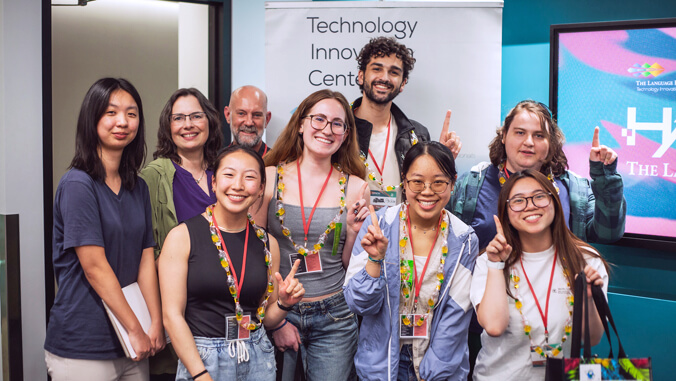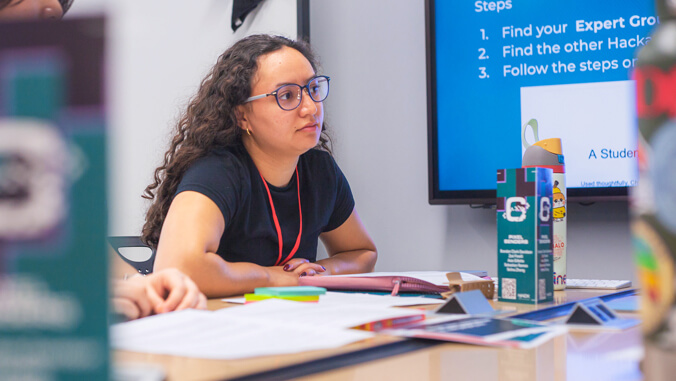
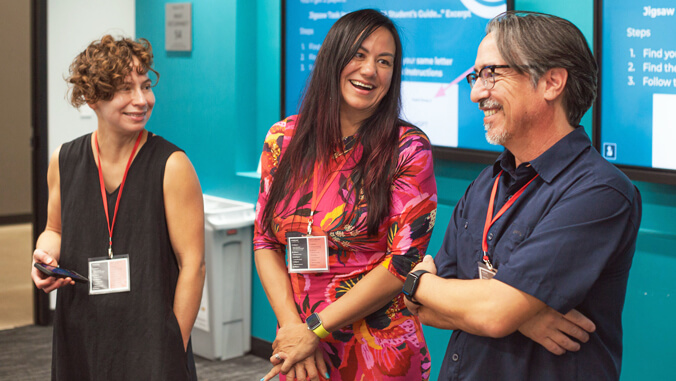
Create an AI-powered experience that helps people learn a language outside the classroom—that was the challenge posed to students at the 2025 Flagship Hackathon, hosted by the University of Hawaiʻi at Mānoa’s Language Flagship Technology Innovation Center (Tech Center).
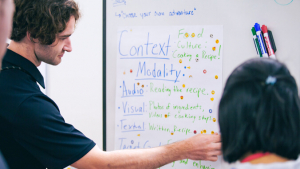
UH hosted the national competition at Arizona State University that brought together 34 students from 12 institutions including UH Mānoa and five language programs: Arabic, Chinese, Russian, Persian and German. Organized into six multilingual teams, the students had just two days to design a tech-based tool that supported language learning “in the wild”—meaning casual, real-world use such as studying abroad or chatting online.
“By hosting the Flagship Hackathon, UH Mānoa affirms its national leadership in language technology innovation—bringing together students from across the country to tackle real—world challenges with AI, while exploring how technology can support lifelong, personalized language learning beyond the classroom,” said Julio Rodriguez, director of the UH Tech Center.
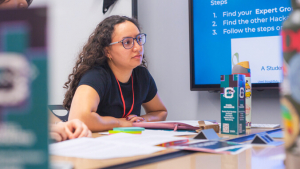
The winning project, Sl@ngQuest, is a chatbot that teaches users internet slang in the target language by pulling examples from authentic media. The team also created a how-to chapter for a digital Field Guide, complete with AI integration and multimedia elements.
An honorable mention went to Cultivating Friendships Abroad, a tool to help learners form meaningful connections while overseas.
The Tech Center’s annual Hackathon is known for its fast pace and creative energy. Faculty from UH such as Richard Medina and Molly Godwin-Jones lead the design of this year’s event together with former Tech Center interns, who helped mentor students to tackle language learning challenges through innovation. Each team included at least one computer science student to handle technical development.
The UH Tech Center is housed in the College of Arts, Languages & Letters.
